In pictures: Grimes' Hollywood studio
The candid star talks gear, the pressures of success and a 'pivotal' album release
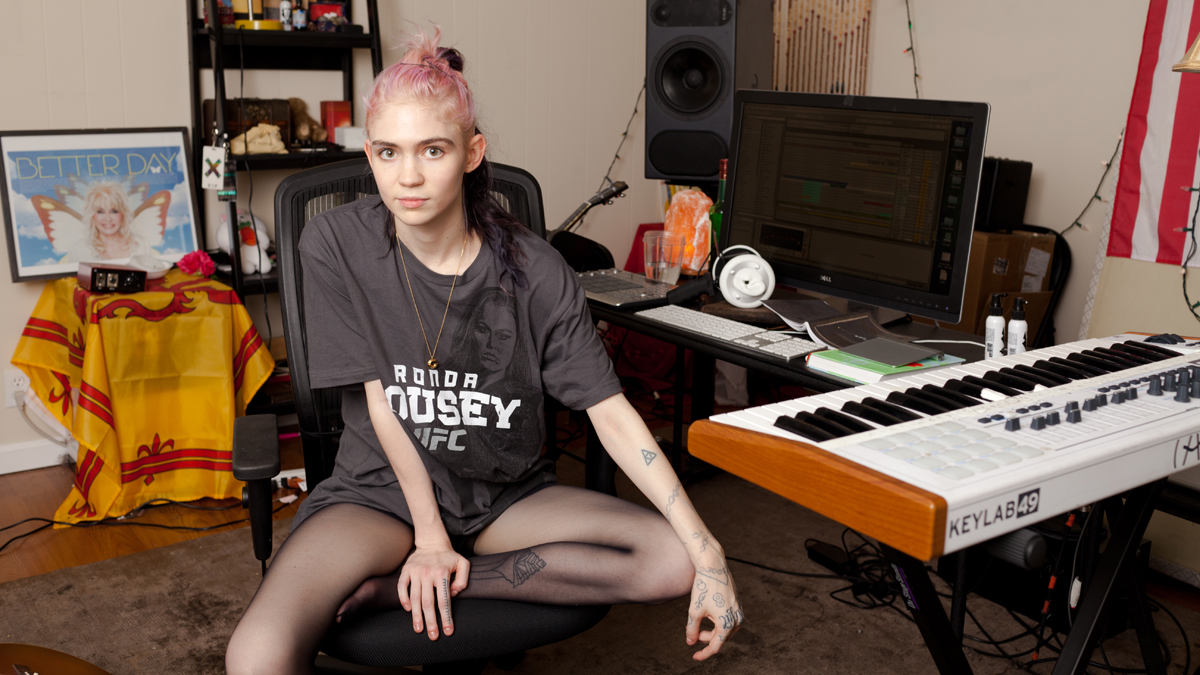
Welcome
Born and raised in Vancouver, Canada, Claire Boucher is one of a small handful of rising artists breaking down the barriers between dance music, pop and experimental electronica.
Perhaps it was the fact that Grimes thought nobody would ever listen to her kooky, idiosyncratic 2010 debut album Geidi Primes that led to its eccentric appeal. The more ‘complete’ Halfaxa was churned out later that year to a welter of positivity.
In 2012 Grimes delved deeper into the depths of her imagination with the album Visions, recorded entirely using GarageBand and a Juno-G synth. Seemingly happy to peddle herself as a reclusive insomniac, emitting bizarre quotations about “channelling spirits”, her first album for 4AD saw her work labelled as haunting, impressionistic and “impossible to dance to”.
With the release of her brand new album Art Angels, Grimes continues to experiment within a whisker of what is considered to be normative electronic pop. Chatting to the rising star immediately puts to bed media suggestions of a proclivity for being swayed by popular opinion; instead, Grimes proves to be a multi-talented and agreeably headstrong musician with an obsessive passion for sound design.
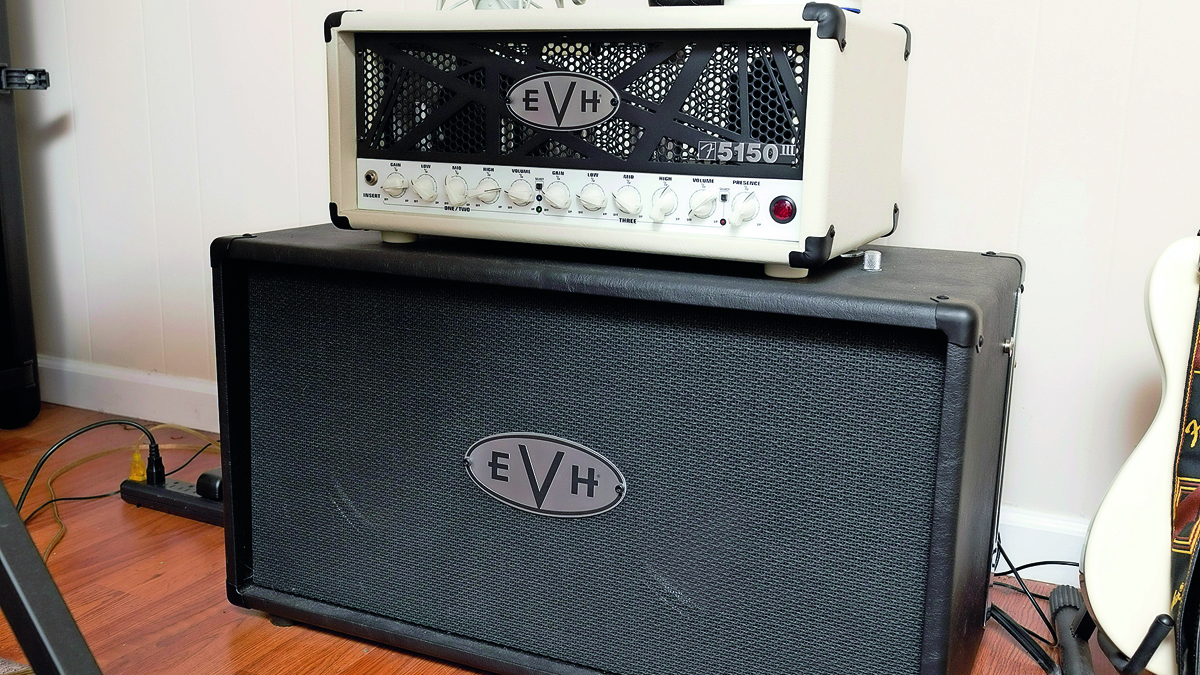
Influence
When did you realise music was the right career path for you?
“Super early on. I’d put out a couple of records and was opening for an artist in Montreal when the promoter paid me $275 after the show. I was like, ‘I’m rich!’, and then I just quit everything else. At the time, that was so much money to me that it just seemed obvious that I was going to be able to have a career in music. So that was definitely a key moment.”
You cited Nine Inch Nail’s Pretty Hate Machine as an influential album. What did you take from it at the time?
“I would say I was more influenced by The Downward Spiral. That was a really big deal for me. I actually didn’t realise that Trent Reznor wasn’t just the front person when I was a teenage fan. I was like, oh yeah, the band Nine Inch Nails, but didn’t know he was the main producer. Discovering that about him was really important to me because he had such a strong aesthetic, as well as fronting the group and doing all the production and sound design.”
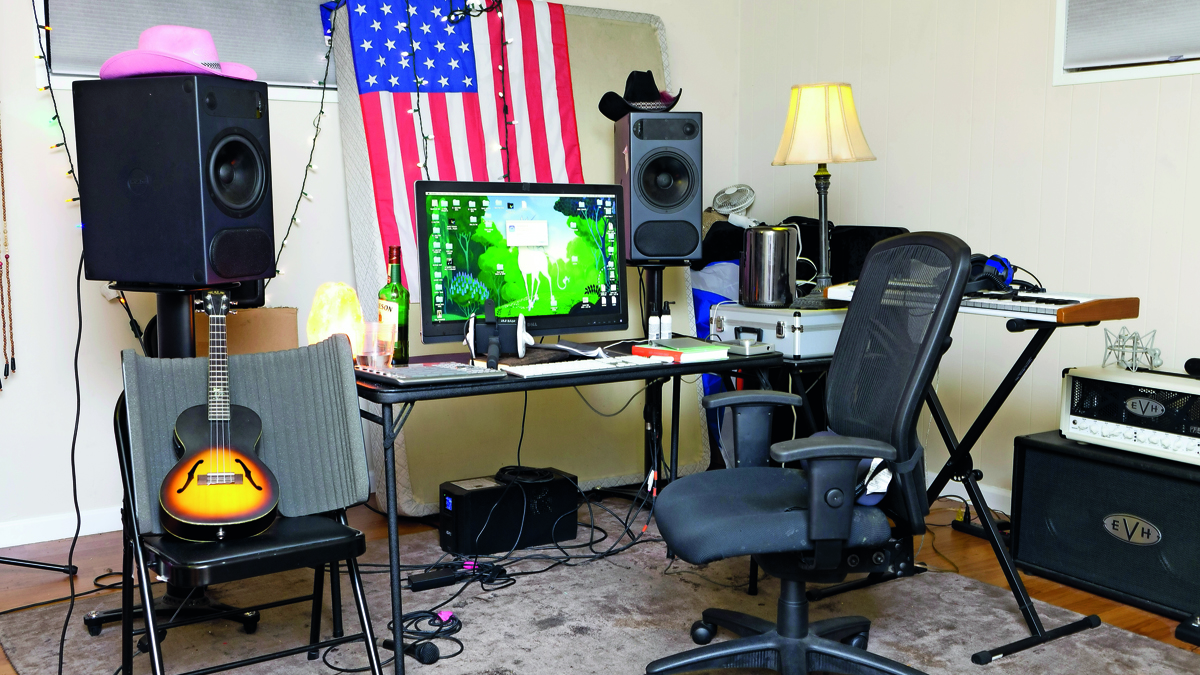
Ableton Live
I understand you’re a big fan of Ableton...
“Right now I’m using Ableton because I love that you can change tempo, keep key and just pitch things around really easily. Ableton is really fast for that kind of thing, but it’s not great for vocals. Although I did most of my vocals in Ableton this time, I usually prefer Logic, but I didn’t wanna keep switching between the two.”
So you’re flexible in your use of DAWs?
“I think it’s important not to stick with the same programs because you start getting muscle memory. I work in Pro Tools because it’s really nice to be able to hand Pro Tools files to a mixer and have him mess with them. I produced the album at home on the Mac but this is the first album that I’ve had professionally mixed at another studio. When I got the parts back they almost sounded live; the mix added a lot of space. I probably use too many compressors on my stuff – I’m kind of like ‘gah’ trying to cram everything in. I also have a lot of files. When I’m done with a track there’s so many layers, so having it mixed just makes it feel richer and fuller, and the vocals aren’t fighting with the guitars. This is the first time I’ve been working with guitars and the fact they’re competing with the vocals has been the biggest difficulty for me.”
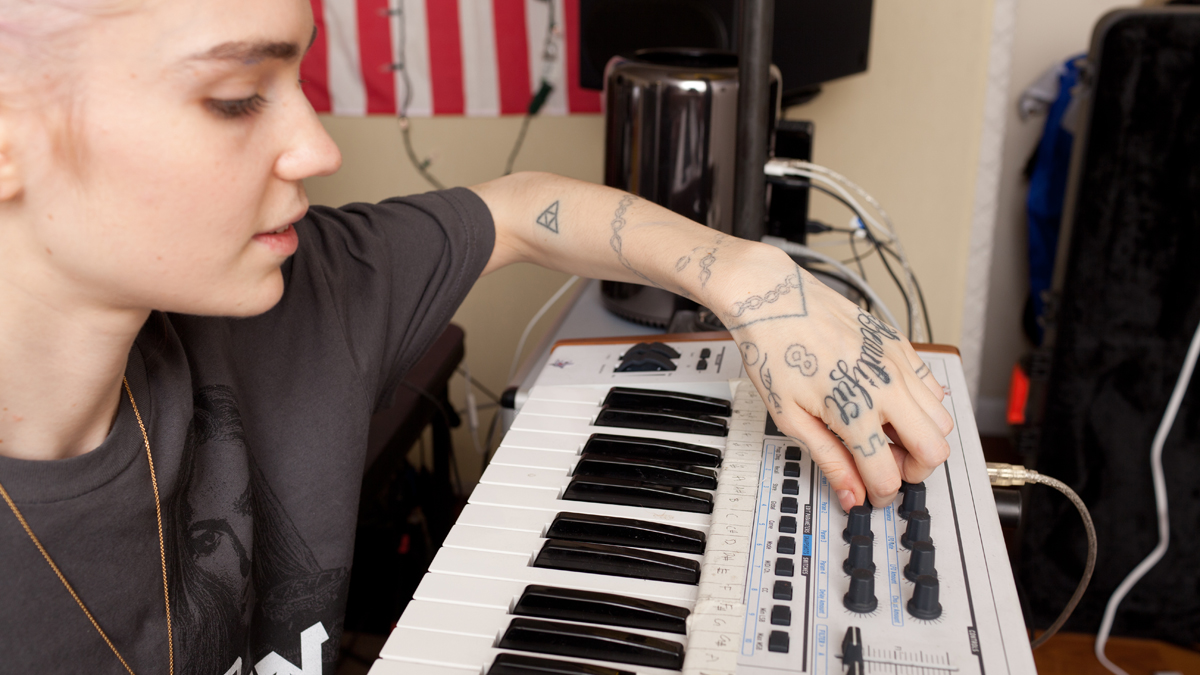
VSTs of choice
What virtual synths and plug-ins do you like working with in Ableton?
“I love the Nexus VST and Native Instruments’ Massive, and I really like using iZotope Ozone for sending people demos. I ‘mastered’ the album with Ozone, although obviously I got it professionally mastered in the end. I love the Waves plug-ins too, especially the Manny Marroquin reverbs, which I really like for doing vocals. I used iZotope Nectar on a couple of vocal tracks too, but it crashes a lot.”
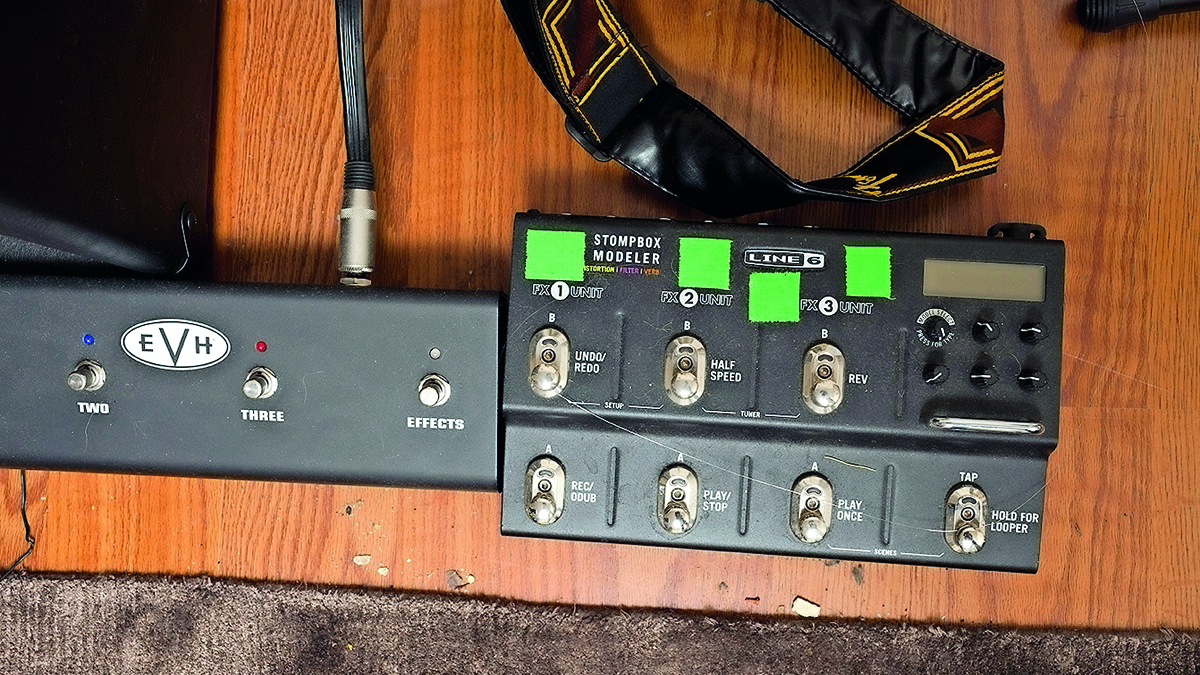
Processing power
Are the songs data heavy and does that lead to software conflicts?
“When I’m exporting stems I sometimes have to make two files to separate the instrumental from the drums, otherwise it crashes. Then I have to do the vocals in another file. There’s a lot of data but it really varies. There’s a song on the album that only comprises ten tracks and others that are 250, not including vocals, so it can be very intense! There’s one song that’s got Guitar Rig on it, and that software always crashes everything, then it takes me five tries to reset the computer and get the files back open. I mix as I go, so the track has to be finished before I start on vocals, otherwise it’s a disaster.”
Sounds like you need a faster computer with all that layering...
“I do a lot of layering. I’ll use synthetic claps then do a couple of layers of real claps on top so it has a really satisfying digital feel that also sounds a bit more real. I’ll use a digital kick for the low-end and a real kick for the high-end. Some presets are great, but I usually fuck around with them, and I’ve started building sample packs, which is really fun – just going around my house with a nice microphone banging things together and making sounds. Actually, this is the first time I’ve had a computer that’s good enough to be able to do all of that, but one of my goals with the next album is to be more decisive and not go so crazy.”
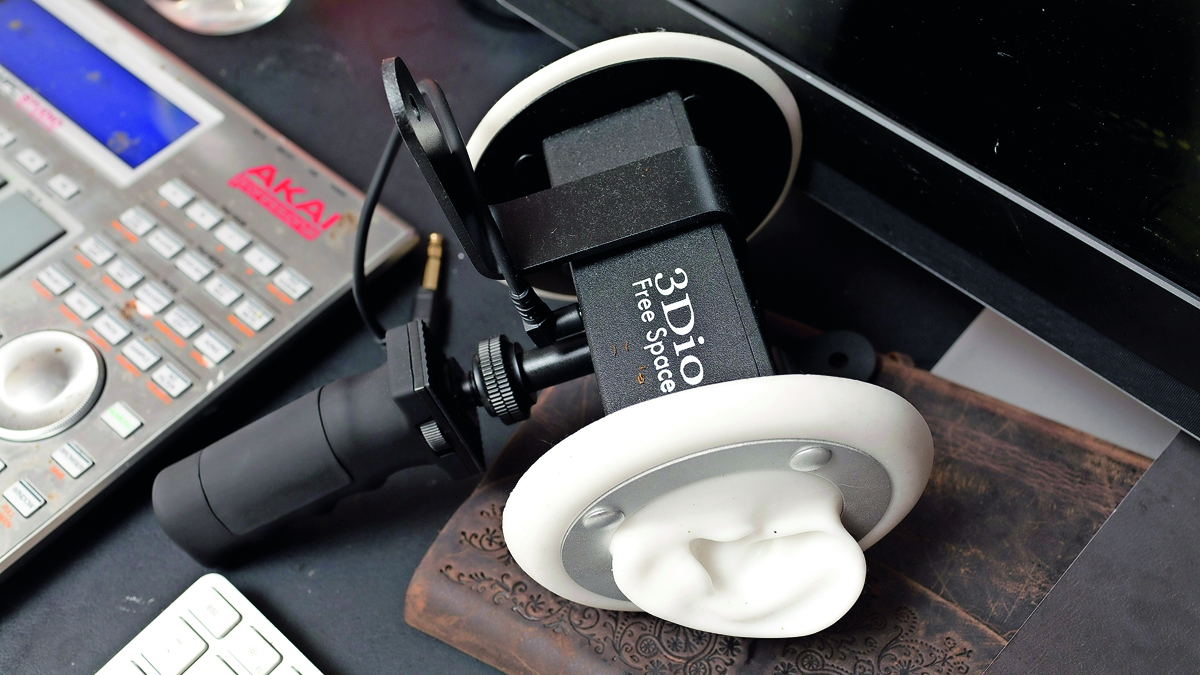
Binaural Microphone
The weird-looking 3Dio Free Space Binaural Microphone stands out. How do you use it?
“I actually use that for spatial stuff that’s way behind you. It’s got two different microphones going in opposite directions so you can get a 3D sound effect. It sounds like how the human ear hears things, but you can’t really detect it unless you’re listening on headphones and it makes some really interesting panning stuff. I want to get a better version of the 3Dio mic for vocals, but so far it’s just kind of cool for giving things more of a 3D vibe. It’s hard to use for instruments, although you could probably do something really cool with it for guitars or vocals. Most of the production was already done when I got that mic, so I’ve been mostly using it to make things a bit more subtle and trippy.”
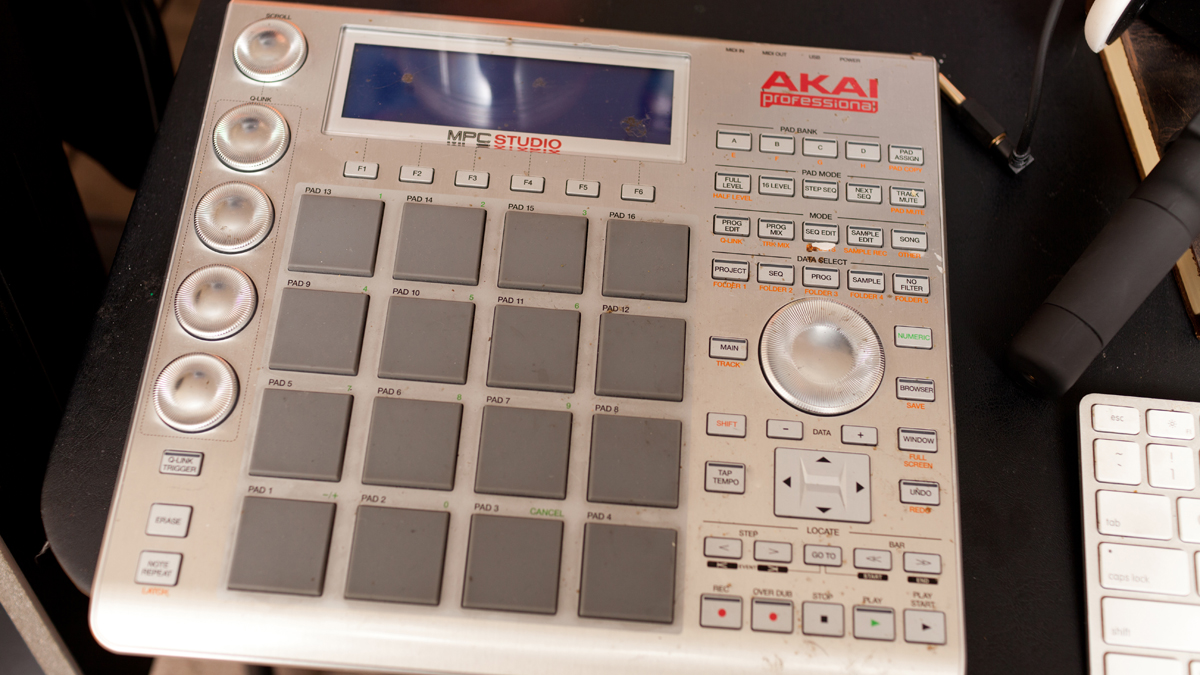
MPC Studio
What do you use the Akai MPC for?
“I really like that machine. I only got it halfway through the record, but the song Scream was made with that. I really like how the drums quantise and I think the MPC is a more intuitive way to make drum patterns. I guess you can drag in melodic stuff, but it’s great for interesting drum patterns and bringing in nice sounds. It’s also really good for trying out different kicks, like putting in four different kicks and seeing which one sounds the best. I’ll definitely use it more on the next record.”
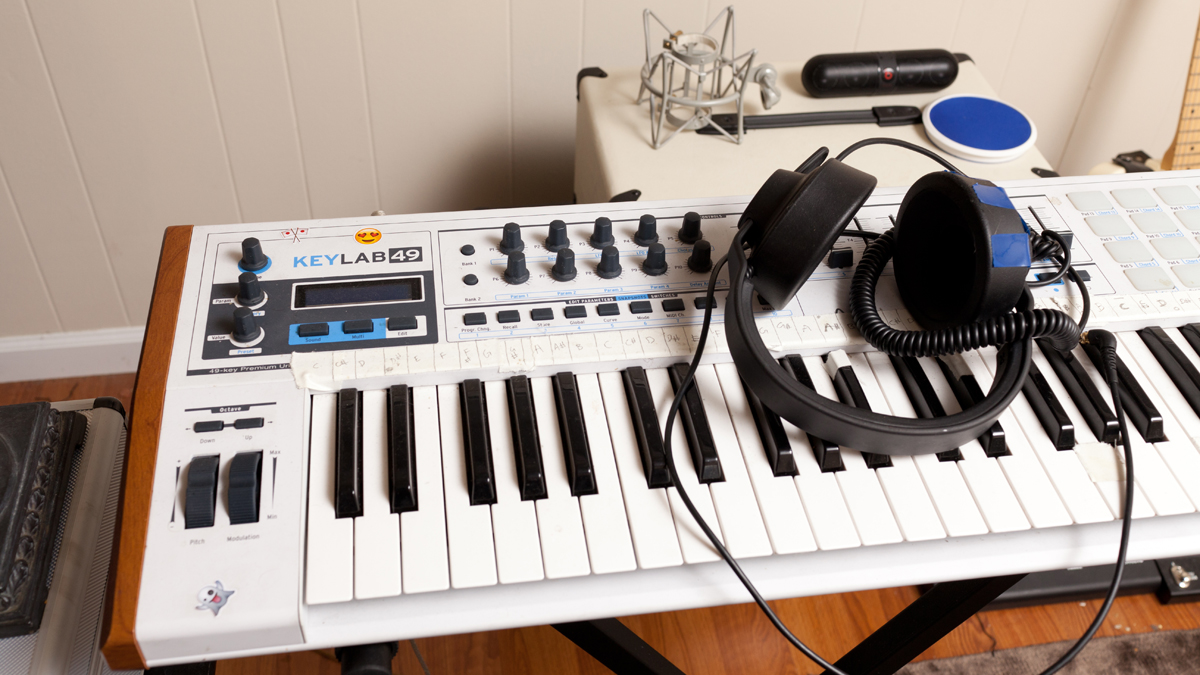
The media
Would you say that ‘Grimes’ is a character that you’ve had to create, and then park when it comes to real life?
“Yeah, definitely. When I’m with my friends I always refer to Grimes in the third person. When I’m at home I don’t wear make-up and I’m super shy. Even when I’m playing a show I have to take an hour beforehand to get into a headspace. It’s not me and it’s not something I feel comfortable doing, and I guess I have to go outside of myself to do it.
“As I go on, Grimes becomes more and more abstracted from who I am, even though there are a couple of songs on this record that are the most personal songs I’ve ever written. Most of the other songs are going into that alter-ego and taking risks, which is easier when you have a character that you can do it through.”
Can you fully focus on your career or does the media influence your emotions too much?
“It’s a bit of both. I try to avoid it and normally never read articles. I just get my friends to tell me if a piece is good or bad, but sometimes you can’t avoid Pitchfork or whatever saying ‘Grimes is stupid!’, and I’m like, fuck, their clickbait is really annoying. When a story is blatantly untrue and puts you in a bad light it kind of gets to me, otherwise I try not to think about it because you can’t really control it.”
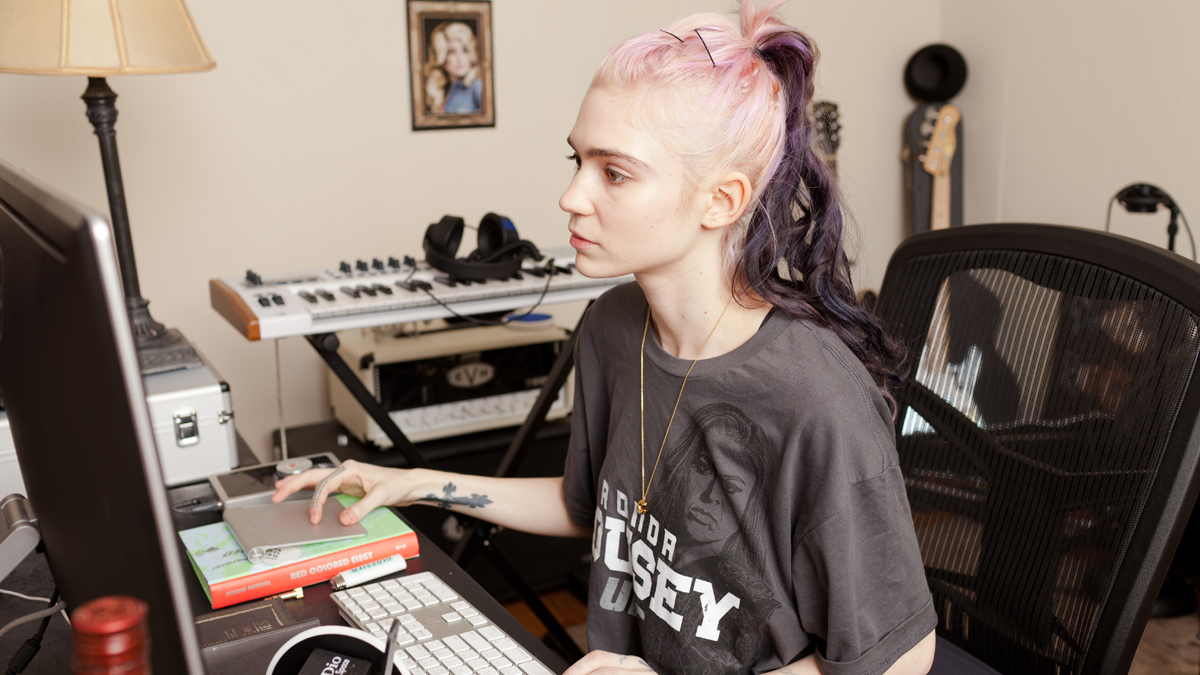
Pivotal moment
Do you see this album as being important for you at this point in your career?
“I guess it probably is pretty pivotal. When I’m working I can’t ever think, ‘yeahthisisgoingtobeahit’ – even the single – because every time I do that it doesn’t work. But this is definitely the first album I’ve released where anyone actually knows who I am. Even when I made Visions my audience was pretty small, so yeah it’s probably pivotal.
“I think it’s my best album and I don’t know how people will react to it, but I think it really says who I am as an artist... or maybe not as an artist but as a producer. I think my other albums are great artistically, but technically they’re a bit ‘bleurgh’. I think this is the first album I’ve made as a musician as opposed to an artist trying to make music.”
For the full interview with Grimes, check outissue 298 of Future Music out now.
Future Music is the number one magazine for today's producers. Packed with technique and technology we'll help you make great new music. All-access artist interviews, in-depth gear reviews, essential production tutorials and much more. Every marvellous monthly edition features reliable reviews of the latest and greatest hardware and software technology and techniques, unparalleled advice, in-depth interviews, sensational free samples and so much more to improve the experience and outcome of your music-making.


